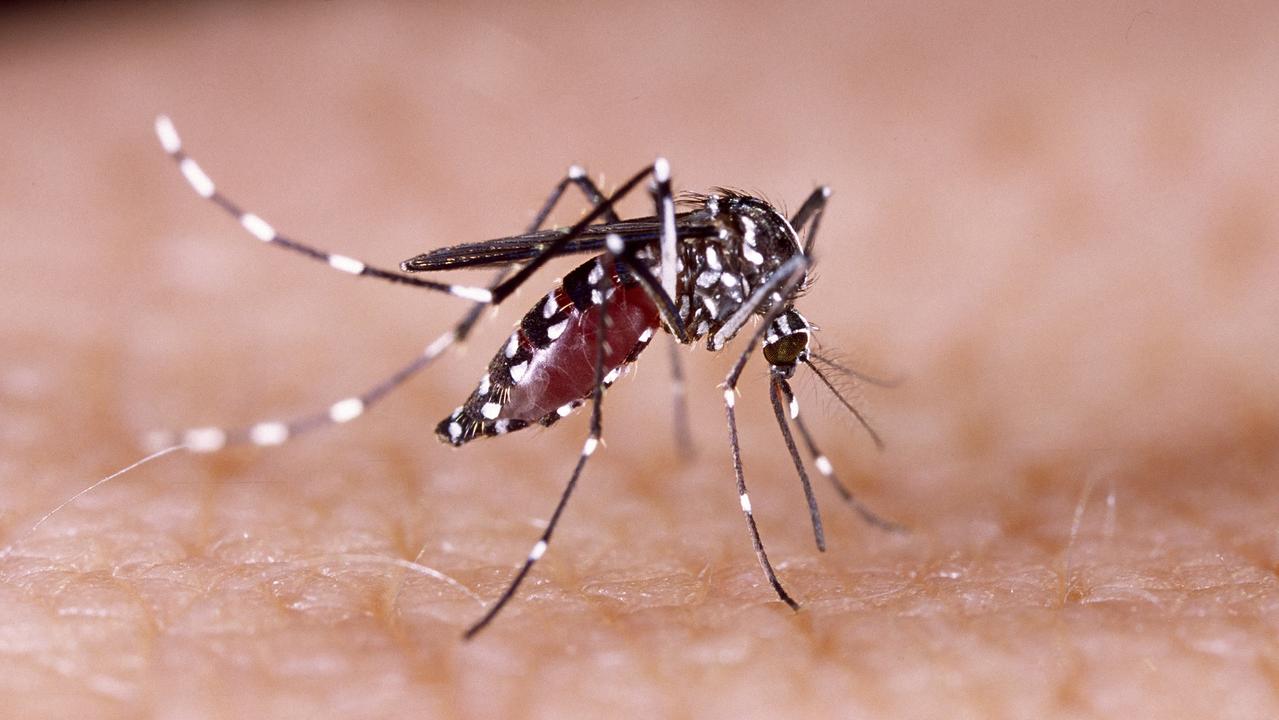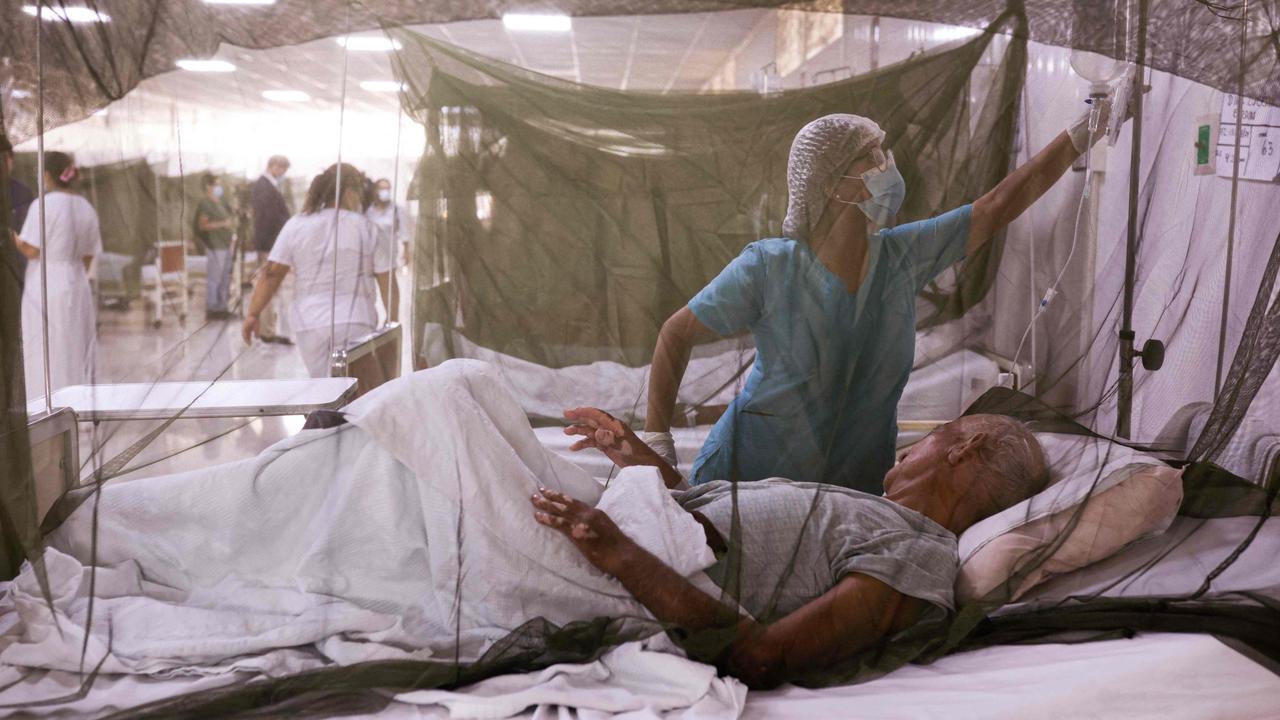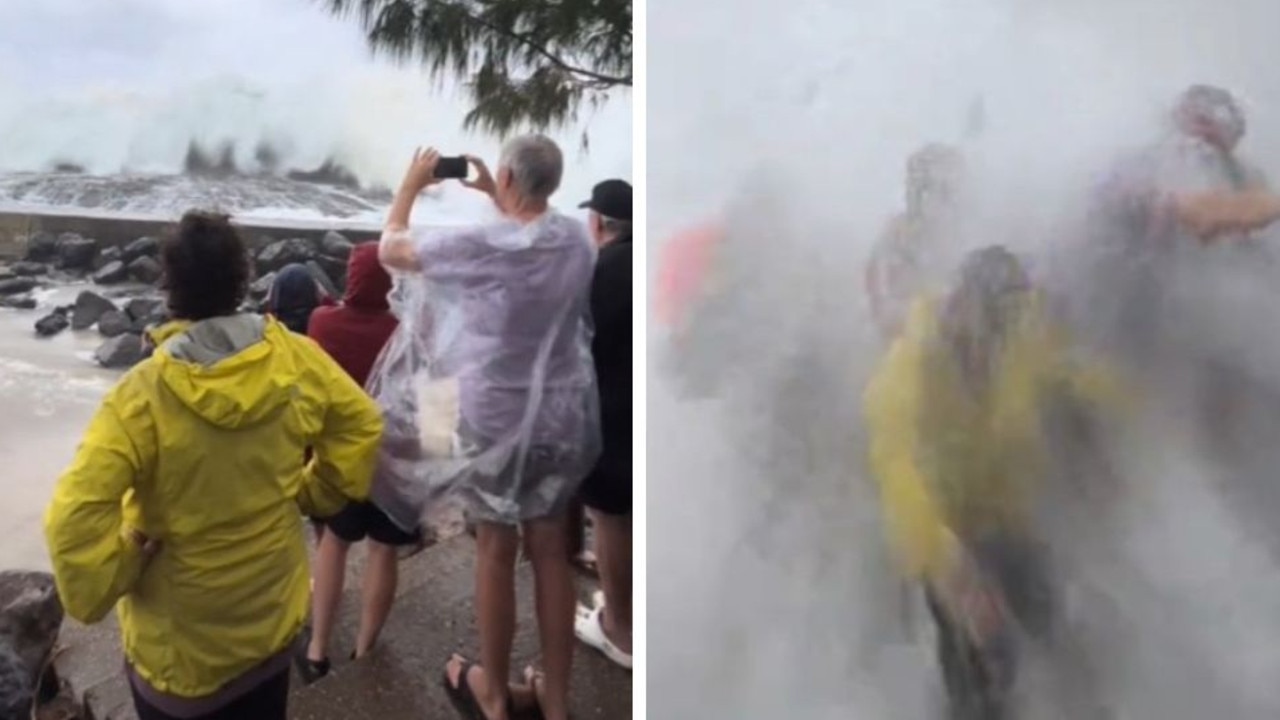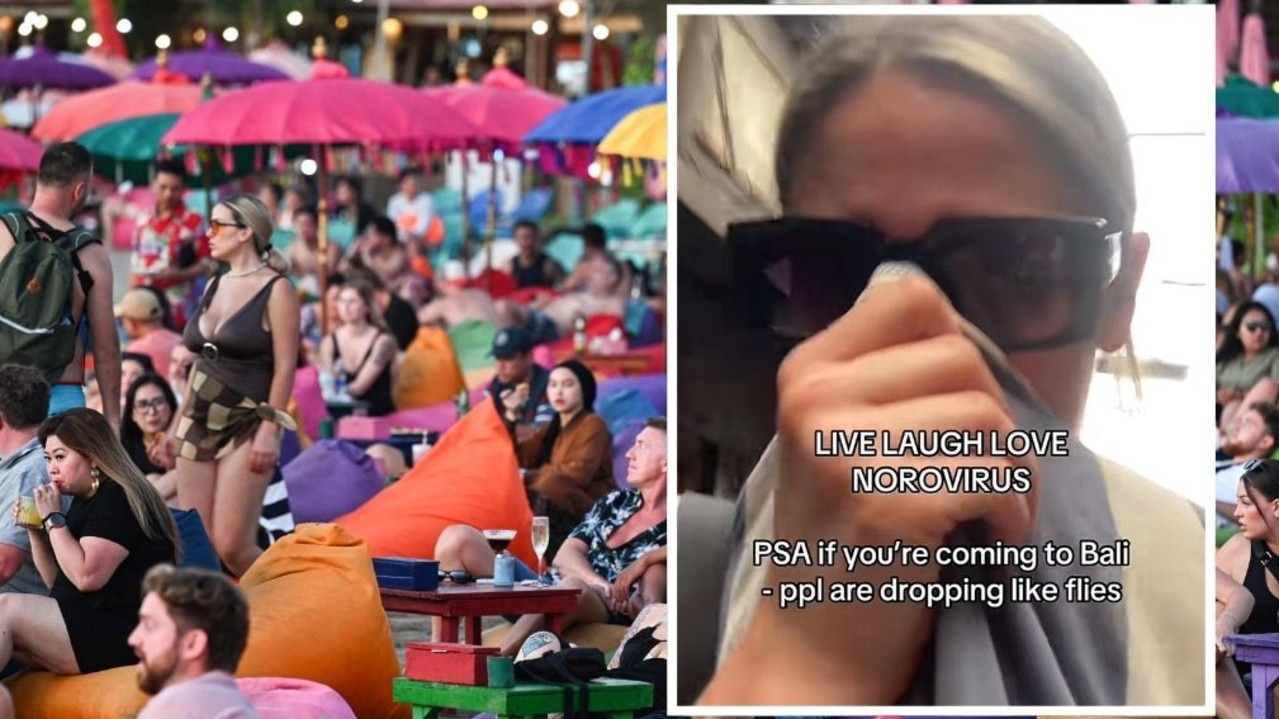Warning for Aussies holidaying in Bali as tourists catch dengue fever
Some health authorities in Australia are noticing an increase in people falling sick with dengue fever after visiting Bali.

Aussies heading overseas are warned to be vigilant around mosquitoes after some Australian regions have experienced an increase in cases of dengue fever in people who have come back from Indonesia’s wildly popular holiday island, Bali.
The potentially deadly virus, also known as break-bone fever and bone-crusher disease, is found in tropical and subtropical climates worldwide and is transmitted to humans through the bite of a mosquito.
A doctor from Tropical Public Health Services Cairns confirmed to Cairns Postthis week there had been five cases of dengue fever in the region within the past fortnight, which were all from people who had been to Bali.
A Queensland Health spokesperson explained to news.com.au that dengue occurs throughout Indonesia, including Bali, “particularly during the rainy season”, which runs from November to March.
Last month, the state recorded 29 cases of dengue fever – some locally acquired in the Torres and Cape region.

Most areas of Australia do not have the mosquitoes that can spread the dengue virus, but cases are still recorded across the country in people who have travelled to dengue-affected areas overseas.
SA Health told news.com.au that South Australia had also seen an increase in cases of dengue fever in people returning from Indonesia. In total, there were nine cases of dengue fever within a fortnight at the start of November, and three later in the month.
In the last two weeks of November, Victoria recorded 12 cases acquired overseas, “predominantly from travel to Indonesia or India”.
NSW Health said it had been notified of 36 cases in November with “approximately 30 per cent of these acquired in Indonesia, with most of those from Bali”.
NT Health has received three notifications of dengue fever in the last fortnight in people who had visited either Bali or Cambodia.
“Travellers should protect themselves from mosquitoes when overseas in countries where dengue is present – noting many of our neighbouring countries are currently experiencing high rates of dengue,” a NT Health spokesman said.

Data from the National Notifiable Disease Surveillance System shows there have been 2153 cases of dengue fever recorded in Australia this year, compared to 1119 the year before, and 1505 in 2019, before the pandemic halted overseas travel.
WA Health said of the more than 500 cases in the state this year, all acquired overseas, “more than 85 per cent were acquired in South or Southeast Asia, with the majority of these from Indonesia”.
The Tasmanian Department of Health did not respond to questions from news.com.au before publication and ACT Health did not provide anything further to the federal government’s annual data mentioned above. The two states have recorded the lowest number of dengue fever cases this year – 20 and 31 respectively.

How to protect yourself against the dengue virus
Most Australians are at no risk of getting dengue fever unless travelling overseas due to the climate the Aedes aegypti and Asian Tiger mosquitoes live in.
The disease is common in many tropical countries including in the Americas, Africa, the Middle East, Asia and the Pacific Islands.
Experts say the best way to prevent dengue is to avoid being bitten by mosquitoes. They are most active around dawn and dusk.
To avoid contracting mosquito borne diseases, state health authorities urge travellers to wear long-loose, light coloured clothing, and use insect repellents with diethyltoluamide (DEET), oil of lemon eucalyptus or picaridin.
If also wearing sunscreen, Queensland Health advises you apply the sunscreen first and then the repellent.
NT Health added that travellers should ensure flyscreens are intact in accommodations and tents.
Typical symptoms of dengue fever can include sudden onset of fever, extreme tiredness, intense headache (especially behind the eyes), muscle and joint pain, loss of appetite, vomiting, diarrhoea, abdominal pain, sunburn like a rash on arms and legs, minor bleeding from the nose or gums and/or heavy menstrual periods.
According to the World Health Organisation, most people who are infected will be asymptomatic or only have a mild illness, but occasionally dengue can cause more severe cases, and even death. There is no specific treatment for the disease.
Aussie model’s $52,000 dengue fever ordeal
In 2015, Aussie model Emily Gurr, then 21, became seriously ill with Dengue Fever while visiting Bali, which she got from a mosquito bite about a week earlier in Vietnam.
At the time, she said she woke up one morning suffering from what she initially thought was a bad hangover, but things went quickly downhill.
“I felt awful, like a bus had hit me. I didn’t know what it was but by the night time it was excruciating,” she previously told news.com.au.
After about 10 days in hospital the call was made to airvac Ms Gurr out of Bali as her condition went downhill.
She was flown to Darwin for treatment, and her mother was flown in to be with her.
The cost of the emergency evacuation alone was about $52,000.


Natalie Smith, spokesperson for 1Cover Travel Insurance, told news.com.au earlier this year that in some instances, the cost of catching dengue fever abroad can be extreme.
“Contracting dengue fever overseas can have serious implications on both your health and finances,” she explained.
“Even in moderate cases, the average cost to treat and assist travellers with dengue fever is about $7000.”
Ms Smith noted that in some instances, dengue fever claim costs can soar into the tens of thousands.
“We recently assisted a couple in their twenties, both sick with dengue fever, which led to a $20,000 claim.”
With Bali remaining a popular holiday spot for Aussies year-round, Ms Smith said dengue fever was something to beware — despite most cases being mild.
More Coverage
“At least one-in-20 cases can become severe, leading to shock, internal bleeding and even death,” she warned.
“While there is no specific treatment for dengue fever, patients may require hospitalisation, IV treatment, and in some cases, a blood transfusion.
“If you’re holidaying in a tropical region and experience a high fever, severe headache and/or nausea you should seek medical help immediately.”






